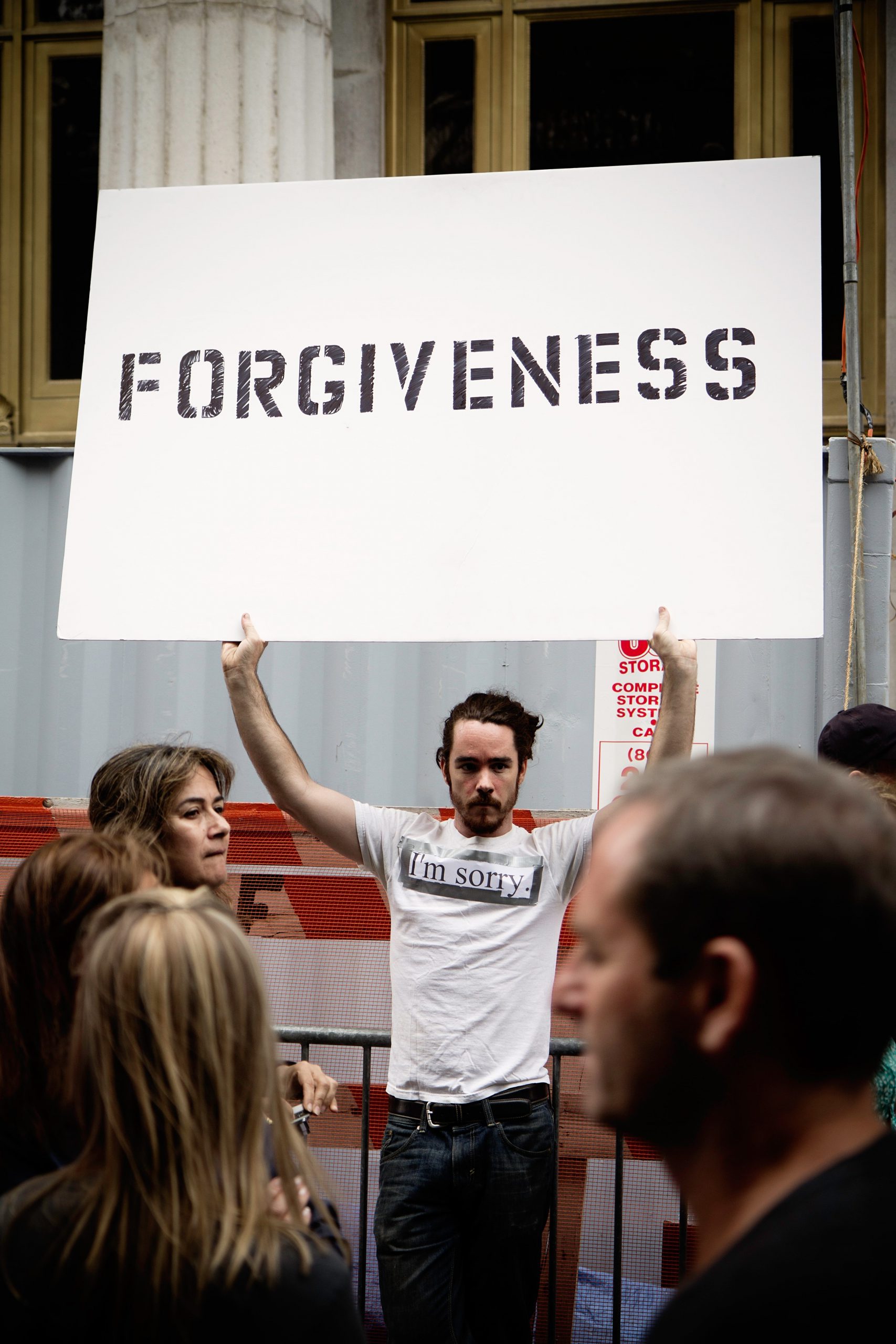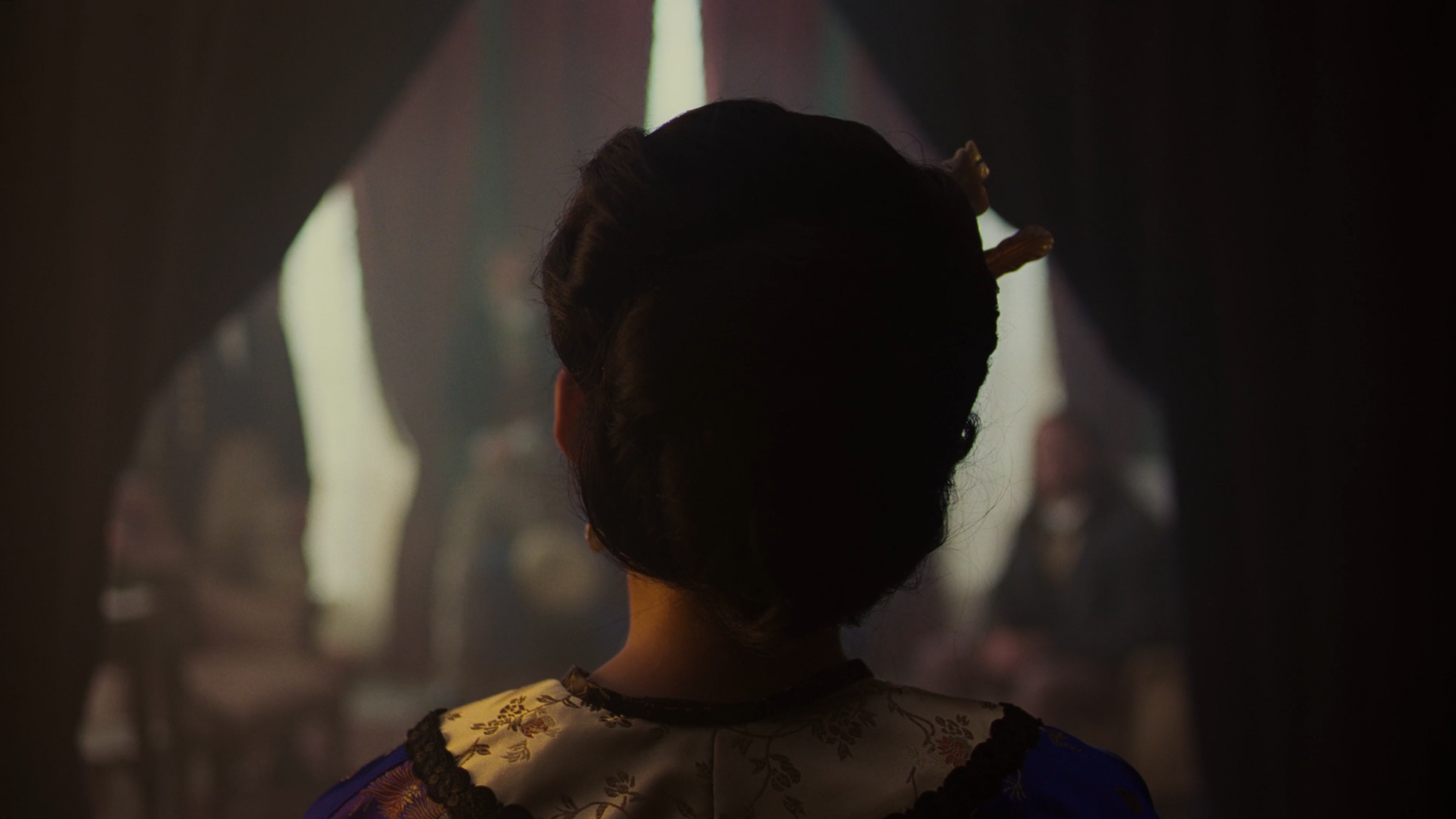Can an authentic apology from a perpetrator heal the wounds caused by sexual assault?
In her new book The Apology, Eve Ensler — best known for her groundbreaking play Vagina Monologues and for her activism in the movement to end violence against women — imagines her now-deceased father apologizing for having abused her sexually when she was a child. In a podcast conversation about the book with comedian and writer Marc Maron, Ensler observes that while the #MeToo movement has exposed the endemic abuse perpetrated by powerful men, we have yet to see many, or any, of those men make a serious commitment to accounting for their behavior. With this book, she tells Maron, “I thought to myself, maybe I could write what I want to hear, maybe I could write the words and what it would sound like and look, so it could be a possible blueprint.”
Today is Eve Ensler (@VDay) day on https://t.co/KBRiPQLutw! A profound conversation about her new book ‘The Apology.’ A special talk that I was honored to have. Powerful talk! Do it up!
Full episode here – https://t.co/InN1XPs3ai
Also on @ApplePodcasts – https://t.co/QH2acaJBXh pic.twitter.com/asmN0eUyhh
— WTF with Marc Maron (@WTFpod) June 17, 2019
It seems that the #MeToo movement has reached a plateau. The consequences for the perpetrators are stuck in limbo as society searches for the means to effect necessary systemic change. As Ensler says to Maron, “We’ve broken the silence. But now men have to do their part of this or we’re not going to move forward.”
Almost none of the prominent men exposed and demoted by #MeToo has offered a real apology — let alone an act of contrition. Charlie Rose, Louis CK, Russell Simmons, James Toback, and Kevin Spacey all issued statements laced with puzzlement, self-pity — or, in Toback’s case, outright hostility. Others verged on the satirical: celebrity chef Mario Batali sent a mass e-mail apology that included the postscript: “In case you’re searching for a holiday-inspired breakfast, these Pizza Dough Cinnamon Rolls are a fan favorite.” The writer Geraldine DeRuiter won a James Beard Award for an article in which she frames her experience of following Batali’s failed recipe as a satirical allegory for his non-apology.
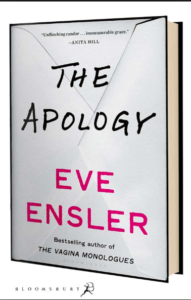
Quite a few of these men tried to fast track a comeback, circumventing both apology and expressions of contrition. Charlie Rose approached feminist editor Tina Brown with the idea that she produce a program with him interviewing prominent men who had been toppled by #MeToo (she declined). Louis CK received a standing ovation when he appeared unannounced to do a stand up set at New York’s famous Comedy Cellar, only a few months after he acknowledged that he had on several occasions stripped naked and masturbated in front of female comedians whose nascent careers were predicated on his goodwill. And last October The New York Review of Books published a 3,000-word, first person essay by Jian Ghomeshi, the disgraced Canadian former radio show host. The CBC fired Ghomeshi in 2014 after learning that the Toronto Star was about to publish an investigative report detailing credible accusations that he had for years battered women during sexual encounters, and had abused women who worked for him. Titled “Reflections from a Hashtag,” the essay is redolent of narcissism and self-pity. It begins:
Not so long ago, I spoke to hundreds of thousands of listeners across North America every day on a public radio show. These days, the closest I come to public performance is at a neighborhood karaoke bar in New York. Even that can have its perils.
Ghomeshi was oblivious to the rather obvious contradiction in having been granted the platform of one of the most prestigious publications in the English language from which to proclaim that he had been silenced.
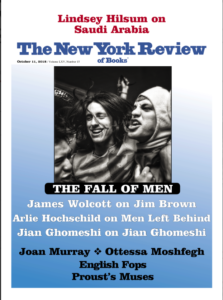
Reaction to the essay was swift and negative, rising to a crescendo of outrage after Ian Buruma, then editor of the NYRB, made some egregiously tone deaf remarks in a follow-up interview conducted by Isaac Chotiner for Slate. One line in particular lit up the internet. In response to Chotiner’s observation that several women had credibly accused Ghomeshi of having punched them in the head during sexual encounters, Buruma responded:
The exact nature of his behavior — how much consent was involved — I have no idea, nor is it really my concern.
For Buruma, apparently, the fact that a Canadian court had declined to convict Ghomeshi of rape based on existing jurisprudence was the only relevant consideration. His response indicates that he is not at all interested in issues of morality, in the feelings of women. Nor does he address the question of whether or not jurisprudence is equipped to provide justice to women in cases of sexual assault that do not meet the legal definition of rape. Buruma seems not to know (or perhaps does not care) that Ghomeshi acknowledged, in a first-person essay published on his Facebook wall, that he committed many violent sexual acts on women. Ghomeshi claimed they were consensual “rough sex,” but his essay does not include the viewpoints of the women who accused him of assault.
Is being fired from their jobs and socially marginalized sufficient punishment for these men? There are those who say yes, and who further assert that women who demand punishment that goes beyond sanctions are indulging in gratuitous rage. In response, feminist journalist Rebecca Traister offers this observation in an essay published for New York magazine’s The Cut:
Today, there’s quite a bit of blowback at these guys on social media. Which makes it crucial to point out that irritation — or flat-out rage — at the men attempting professional comebacks after having been credibly accused of sexual harassment and abuse isn’t necessarily about a punitive urge to see them forever in purgatory.
The goal, in other words, is not to seek eternal damnation for these men, but rather to see them doing the kind of work that would actually change the paradigm. So far, none have accepted this challenge.
There is, however, at least one recent example of a famous man who did offer a considered apology to the woman he had assaulted.
Late last year the journalist Zainab Salbi interviewed Devin Faraci, once an influential film critic who was editor in chief of birth.movies.death, for a PBS television series called #MeToo, Now What? Today, Faraci earns his living making coffee at a Starbucks; he resigned his editorship after a woman accused him of sexual assault. Separately but in the same episode, Salbi also interviewed Caroline Contillo, Faraci’s accuser. Caroline told The Conversationalist that PBS had informed her they would do a segment on Faraci with or without her involvement.
Faraci’s fall predated #MeToo by about one year, and he truly brought it on himself. A self-proclaimed feminist, he tweeted his disgust at the infamous Access Hollywood tape, in which Donald Trump boasted of having committed sexual assaults on multiple women, by “grabbing them by the pussy.” In response to Faraci’s comment, Caroline Contillo fired off a tweet, in which she accused him of having done the same thing to her. Within days of the ensuing Twitter storm, Faraci, who acknowledged a severe alcohol problem that causes him to black out and often precipitated bad behavior, apologized and resigned. But just one year later, he was quietly rehired. This premature attempt at reestablishing his career elicited a cascade of negative reaction, and Faraci resigned for a second and final time.
Here the story deviates from the script: rather than licking his wounds angrily as he searched for another way to make a professional comeback, Faraci entered a 12-step recovery program. He now seems committed to a process of transformation and to making an authentic apology.
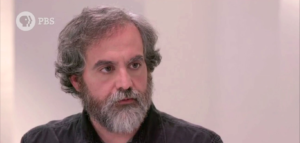
While Salbi’s separate interviews with Caroline and Faraci are short and somewhat superficial, they do provide insight into the impact of sexual assault and the power of a sincere apology. A victim who receives an acknowledgement of wrongdoing and a heartfelt expression of contrition from the perpetrator can experience a powerful physical and emotional response. In the interview, Contillo tells Salbi that while the assault itself was terrible, a “larger psychological pain had lodged itself” in her body.
Caroline Contillo highlights one of the less understood effects of trauma — that it invades the body and stays there, long after the physical act. Ensler says the same thing to Maron: that when a victim receives an apology that carries empathetic recognition by the perpetrator, it causes a physical reaction. Contillo said that Faraci’s apology provided relief not only because she could let go of the pain, but because she now felt that she was “living in a culture that suddenly seemed to care about” women who had been sexually assaulted or preyed upon.
Faraci offered his considered apology as part of a 12-step program. He said he had been eager to offer it sooner but was counseled to wait for that stage of the recovery process (step nine of the 12 steps); he decided “to trust the process.” In Alcoholics Anonymous, as in other frameworks for personal transformation, an apology is valued for its sincerity. Absolution is a nice bonus, but it is not the motivating factor.
In an email to The Conversationalist, Contillo writes, “My acceptance of his apology was an indication that I believe he could change — not evidence that he has.” But she does seem to feel that PBS coerced her to participate in the #MeToo program by telling her that the interview with Faraci would be broadcast with or without her participation, and that Faraci overstepped by failing to inform her before publishing a blog post about his apology and her having accepted it. Contillo says that she is not “optimistic that any deep-seated transformation has taken place.” But perhaps she would feel differently if PBS had approached her with more compassion, and if Faraci had consulted her before publishing his blog post.
“Does a sincere apology hold the key to transformation?” Contillo wonders.
I totally believe so. I had hoped to talk on the PBS show more about that, and my work with the Zen Peacemakers, who do reconciliation work. But I quickly realized when I was on set that it wasn’t really going to be about that. I do hope that story gets told: that when we can face a seemingly intractable situation of harm without turning away and without jumping in to fix it with a transaction, shifts can happen.
The power of Eve Ensler’s book is that it offers real insight into how to engage with what the perpetrator did while finding a way toward reconciliation and healing. The father she conjures is fully human, even as he speaks to her about his monstrous acts. Without excusing his behavior, Ensler draws from the depths of empathy to understand how a father could do such harm to his daughter. She shows the darkest interiors of human behavior, but also finds the source of the hurt and anger that cause it. In writing the book, Ensler experienced what she calls the “alchemy of the apology.” In her conversation with Maron she says that it “changes the chemistry of your own being.”
It starts to release things that have just been stuck there — and not knowing…and searching…why did this person do this to me?”
Maron’s own reaction to reading the book seems almost to be an incarnation of that alchemy, of exactly what Ensler intends the book to do. Throughout their podcast discussion he is clearly grappling in near-agony with toxic masculinity, as he experiences it and as he observes it in others. He is unpacking the issues in real time, with Ensler as his interlocutor-slash-therapist. For Ensler, the conversation with Maron is an opportunity to see the book’s effect on a male reader. That is why, although The Apology is a brutal account of what her father did to her when she was a child, it also offers, as Ensler describes it “a bridge.” She asks:
“Do we want to keep punching at each other or do we want to stop violence; to build a world where women feel equal and free and safe and men feel really good about that, [so that] they feel like we are all in the same story?”
While #MeToo raised awareness significantly of the pervasiveness of predatory male misbehavior and its corrosive effect on women, the road to change is paved with many obstacles. If we are to uproot this pervasive, toxic behavior from our society, we will have to embark on a painful but necessary transformative process that includes truly sincere, well-considered apologies from the perpetrators to their victims, with no strings attached. One of the positive effects of the heightened awareness that comes with #MeToo is that now we know what we need to do; the issue is finding the will to do it. Ensler’s The Apology provides the roadmap to change. Devin Faraci and Caroline Contilllo’s experience shows the direction this process can take. Certainly, transformative justice is a tricky thing to achieve. Society does not usually reward those who undertake the painful process, while establishment forces like lawyers and public relations agents caution their clients against it. But if we are truly committed to changing the status quo, then we must also commit to the process — painful though it may be.
